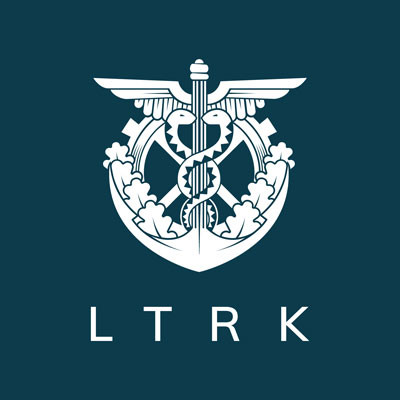Why do hair fall out and how to prevent it?
Physical stress
Temporary hair loss can be caused by any physical trauma—surgery, car accidents, or even the flu. The hair cycle consists of three stages: growth, resting, and shedding. A highly stressful situation disrupts this cycle, causing a significant amount of hair to enter the shedding phase. This is usually noticeable three to six months after the trauma but will resolve once the body recovers.
Pregnancy
Pregnancy creates such a stress state in the body that hair loss may begin (hormones are another factor). Women typically notice this after childbirth, as the birth is a major shock to the body. If this happens to you, don’t worry—your hair will grow back soon.
Antidepressants, blood thinners, and other medications
It’s been proven that several medications cause hair loss. The most common include blood thinners, antidepressants, and ibuprofen found in painkillers. If your doctor determines that any prescribed medication is causing hair loss, ask them to reduce the dosage or recommend an alternative.
Too much vitamin A
Excessive intake of vitamin A through supplements or medications promotes hair loss, according to the American Academy of Dermatology. Adults and children over 4 years old should consume 5,000 international units of vitamin A per day, but supplements can contain anywhere from 2,500 to 10,000 units. Once you start taking a lower dose of vitamin A, hair loss should stop.
Protein deficiency
If you don’t consume enough protein in your diet, your body will stop hair growth, according to the American Academy of Dermatology. This happens about two to three months after reducing protein intake. Keep in mind that there are many good protein sources, such as fish, meat, and eggs.
Genetics
Interestingly, female pattern baldness exists. If the women in your family started losing hair at a certain age, there’s a high chance that you will experience the same. Unlike men, women’s hair typically doesn’t recede but becomes noticeably thinner.
Emotional stress
While this causes hair loss less frequently than physical stress, it can happen after major emotional trauma. In most cases, it doesn’t directly cause hair loss but simply exacerbates an underlying cause. It will pass eventually, but it’s advisable to address the source of the stress.
Anemia
Almost 10% of women aged 20 to 49 suffer from iron-deficiency anemia, which is easily correctable. A blood test can determine whether you have this type of anemia. If you do, you can remedy it with iron supplements or by eating iron-rich greens, fruits, vegetables, or berries.
Sudden weight loss
It’s such a severe trauma to the body that hair may thin. This happens even if weight loss is beneficial for your health but can also be a sign of anorexia or bulimia.
Hypothyroidism
This is a thyroid condition associated with iodine deficiency in the body. It can be detected through tests. If you have it, medication will help, and once it takes effect, hair loss will stop.
Vitamin B deficiency
This can be treated with supplements and changes in your diet. Natural sources of vitamin B are fish, meat, starchy vegetables, and fruits, except citrus.
Female hormones
Hair loss can be caused by changing or stopping the use of oral contraceptives. The same result may occur with menopause. Male hormone receptors on the scalp activate, causing hair follicles to shrink, resulting in hair loss. If the new contraceptive pills are the cause, ask your doctor for another option. Stopping the use of these pills can also cause temporary hair loss.
Polycystic Ovary Syndrome (PCOS)
This is an imbalance of female and male hormones. Increased levels of male hormones lead to cysts, weight gain, a higher risk of diabetes, changes in the menstrual cycle, infertility, and hair loss—although body and facial hair may start growing more. Treatment for polycystic ovary syndrome can resolve this issue.
Hair styling
Over time, excessive hair styling and the use of products can lead to hair loss. Examples include tight braids, perms, chemical straightening, or any other treatments with chemicals or high temperatures. Many of these procedures affect the hair root, which may prevent regrowth. The American Academy of Dermatology recommends avoiding harsh hair treatments and using conditioner after each wash, letting your hair dry naturally, and minimizing heat exposure.
At the Rubenhair Baltics Hair Transplant and Skin Health Center, hair loss and hair treatment are handled by experienced trichologist. A trichologist is a doctor specializing in hair loss, hair treatment, and scalp care. It’s important to identify the cause before starting any medical therapy, as without knowing the cause, the treatment may be ineffective. To understand the cause, the doctor may order blood tests, a scalp scraping analysis, and a trichogram. After diagnosing the condition, the doctor will propose a treatment course during a follow-up visit, based on the previous consultation and test results. This course includes medication, therapeutic cosmetics, dietary and lifestyle advice, as well as injections into the scalp. This is mesotherapy, which involves vitamin cocktails and platelet-rich plasma (PRP) injections.
Improve your quality of life and book a consultation with our specialists, who will provide detailed answers to your questions and determine the best treatment course. Fill out the online form or call +371 26 7777 76, and we will contact you. www.rubenhair.eu







